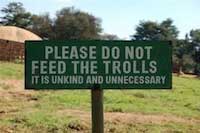The Queen declares war on plastic after David Atte
Post# of 43068

Sarah Knapton, science editor
11 FEBRUARY 2018 • 3:12PM
The Queen has declared war on plastic, banning straws and bottles from the Royal estates.
Buckingham Palace outlined new waste plans and said there was a ‘strong desire to tackle the issue’ at the highest levels of the Royal household.
It is thought that the Queen became personally interested in the problem of plastic after working with Sir David Attenborough on a conservation documentary dealing with wildlife in the Commonwealth.
The pair, who are both 91, were filmed laughing and joking together during the programme which discussed plants to create a network of national forested parks across the 52 countries of the Commonwealth.
The new measures include gradually phasing out plastic straws in public cafes and banning them altogether in staff dining rooms.
Internal caterers at Buckingham Palace, Windsor Castle, and the Palace of Holyroodhouse in Edinburgh will now only be allowed to use china plates and glasses, or recyclable paper cups.
Takeaway food items in the Royal Collection cafes must also now be made of compostable or biodegradable packaging.
“Across the organisation, the Royal Household is committed to reducing its environmental impact,” said a spokesman for Buckingham Palace.
“As part of that, we have taken a number of practical steps to cut back on the use of plastics. At all levels, there's a strong desire to tackle this issue.”
As well as the Queen’s interest, The Prince of Wales also regularly speaks about the damage to the oceans caused by dumped plastic and recently warned that the world was facing a ‘escalating ecological and human disaster’ from refuse in the seas.
Last year he joined forces with yachtswoman Dame Ellen MacArthur to offer a multi-million cash sum for ideas which can keep it out of the ocean and earlier this month met with Marks & Spencer, Waitrose, PepsiCo UK, scientists and environmentalists to discuss how to tackle the issue.
Most plastic packaging items are used only once before being discarded, often ending up polluting the environment.
For example, Britons use 7.7bn single-use plastic water bottles a year and fewer than half are recycled, meaning that 16 million bottles are binned every day in Britain.
Each year more than 300 million tons of plastic are produced globally, and 10 per cent will end up in the sea. It is estimated that there is now a 1:2 ratio of plastic to plankton and, left unchecked, plastic will outweigh fish by 2050.
As well as causing a problem for marine animals, who cannot digest plastic. chemicals leach into the water, and it has been shown that even humans who eat seafood ingest 11,000 pieces of microplastic each year.
Sir David also made the case against plastic in the ocean in the recent series Blue Planet II.
Julian Kirby, campaigner at Friends of the Earth, said: “Blue Planet’s reach now extends to the Royal households which shows how much momentum is building behind the war on plastic pollution.
“From small-holdings to Sandringham, everyone is sick of this problem and wants it fixed.
"Ultimate responsibility remains with manufacturers and government to stop this senseless harm to our environment, with its resultant devastation to wildlife.”
Buckingham Palace is currently undergoing a 10 year, £369 million, refurbishment programme which will make the royal residence far more green as well as replacing electrical cabling and heating systems which have not been updated since shortly after the Second World War.
As part of the scheme to improve energy efficiency by 40 per cent, solar panels are being placed on the roof and an anaerobic digestion unito to generate biogas from good and organic waste.
The palace is also considering solar thermal panels, ground source heat pumps, electrical heating, and fuel cells and estimates that the refit will save 554 tons of carbon each year.
Companies applying for Royal Warrants must also now prove they are not polluting the planet.
www.telegraph.co.uk/news/2018/02/11/queen-declares-war-plastic-david-attenborough-documentary/
 (3)
(3) (0)
(0)